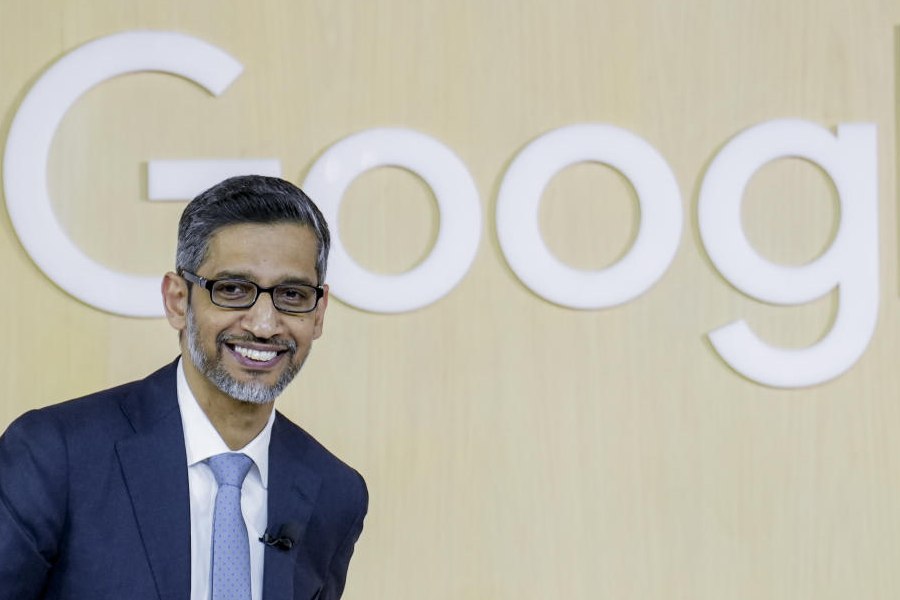 |
I have just finished reading, in this column of The Telegraph, Bhaskar Dutta’s most helpful introduction to the works of the two new Nobel laureates in economics. I want to make a small comment myself, flowing from Dutta’s thoughtful observations. But before that I must tell you about another reaction to the event that I have seen with a certain degree of amazement. It is doing the rounds (through emails) from the day after the prizes were announced — many of my readers must have seen it too.... It goes in the name of Steven Levitt.
Steven D. Levitt is the William B. Ogden Distinguished Service Professor of economics at the University of Chicago, where he directs the Becker Center on Chicago Price Theory. Levitt received his PhD from the Massachusetts Institute of Technology in 1994. He has been teaching at Chicago since 1997.
In 2004, Levitt was awarded the John Bates Clark Medal, awarded to the most influential economist under the age of 40. In 2006, he was named one of Time Magazine’s “100 people who shape our world”. Without a question, young Levitt is Nobel class himself, apart from being the principal author of Freakonomics, which has sold over three million copies in all the principal languages of the Western world. Let us look first at what Levitt has to say about this year’s prize. His note is entitled, “What this year’s Nobel prize in economics says about the Nobel prize in economics”, which, I must admit, is a very winning title by itself. It follows partly like this:
“Earlier today, Elinor Ostrom and Oliver Williamson were awarded the Nobel Prize in economics for their work on the role of institutions. If you had done a poll of academic economists yesterday and asked who Elinor Ostrom was, or what she worked on, I doubt that more than one in five economists could have given you an answer. I personally would have failed the test. I have no recollection of ever seeing or hearing her name mentioned by an economist. She is a political scientist, both by training and her career — one of the most decorated political scientists around....
“Economists want this to be an economists’ prize. This award demonstrates, in a way that no previous prize has, that the prize is moving toward a Nobel in Social Science, not a Nobel in economics.”
Levitt is a bit kinder to Oliver Williamson, I noticed. The only negative point of his about Williamson was that he had not been cited or talked about by other economists over the last 15 years. But the older economists, it is conceded, might feel rather happy about this award.
Bhaskar Dutta, happily, did not go into the question of the social ordering of the relative merits of highly merited people — which question at one time he or his mentor, Prasanta Pattanaik, might surely have been delighted to take up. He has done a more prosaic but far more important work. He has introduced us to one area of economic administration of activity where markets do not exist: the individually unowned commons that belong to nobody, but belong to all. And thankfully, he is not distressed by the presence of non-economists as participants in the question and sometimes as the leading contributors to its delineation — leading to at least the first stages of its solution.
Dutta has not called Ostrom, I am glad to see, a political scientist. He has pointed out that Ostrom’s claim to fame is her work on the classes of problems labelled the “tragedy of the commons”, a term incidentally coined by the biologist, Garrett Hardin, for situations where individual property rights over a resource are not well-defined — the “resource” could be the stock of fish in the ocean, or groundwater, or forests on public land.
Nobel prizes are always chancy. Joan Robinson was voted into the shortlist year after year after year but she never made it. Amartya Sen was on the list several times but missed it repeatedly. He got it, I think, the third time. As usual, every time we had heard he was in the shortlist we hoped for the best. I remember an amusing story we heard about this that I may share with the readers — I am sure Amartya will not mind. Every time he was shortlisted and then got to the very last lap, he would tell only his mother (whom we all adored). She would look forward to it only to be disappointed. Then came the happy ending and Amartya rang her up at night to say that he had got it. Mashima replied, “You poor boy, go to sleep” — thinking this was some prank played on him by somebody. One reason for my telling you this is that Amartya too was perhaps not quite the economist the Chicago market-economics monetary-economics school wanted to see taking the prize in the end. I may be entirely wrong. But the passion with which the great Professor Levitt has written about the prize being captured by the wrong people makes me wonder.
Whatever it is, Chicago seems to have taken it rather badly. And they are partly justified too. After all, fully trained, high-calibre economists had been reading, writing, researching and talking about the cyclical movements of the economy and how to deal with these efficiently and quickly with enlightened market management techniques. This had gone on over all of the last 70 years, more or less to their entire satisfaction. They are entitled to be a little baffled by the sights at the battlefield. The welfare economists, too, did not know exactly what to say. It is time, therefore, for changing horizons, changing agenda, changing paradigms, as Thomas Kuhn might have visualized it: a time of revolutionary change in social science disciplines.
A final comment. Dutta reports that both the prize-winners were rank outsiders with the betting firms. Ladbrokes offered odds of 50-1 on either of them getting the prize. “At least two of my colleagues in the economics department in Warwick, as well as a very well-known economist visiting us from the United States of America, had not heard of Elinor Ostrom.” The Ladbrokes judgment was understandable and so the odds showed what they did: very low probability of either candidate winning. But the betting firm knew a little better: the two candidates had exactly the same probability of winning. For the economics prize, Ladbrokes made no distinction between economics and political science. Some one guessed right: Elinor Ostrom, political scientist, and Oliver Williamson, a slightly backdated economist, each had a small, but absolutely equal, chance of winning the Nobel and they did. Ladbrokes knew better than the large crowd of up-to-the-minute economists observing the race.










